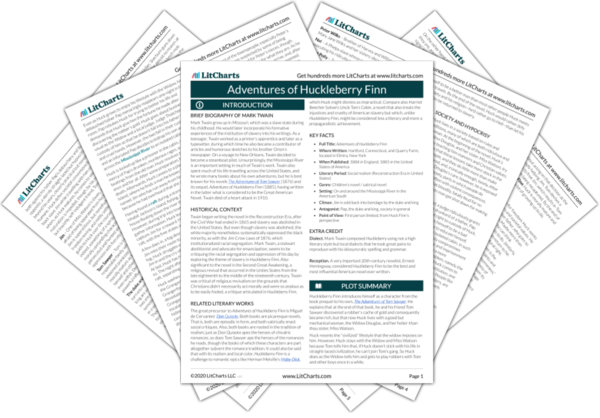The Mississippi River, on and around which so much of the action of Huckleberry Finn takes place, is a muscular, sublime, and dangerous body of water and a symbol for absolute freedom. It is literally the place where feels most comfortable and at ease, and also the means by which Huck and hope to access the free states. The river is physically fluid, flexible, and progressive, just as Huck and Jim are in their imaginatively free acts of empathy with other characters and in their pragmatic adaptability to any circumstances that come their way. However, in being absolutely free, the river is also unpredictable and dangerous, best exemplified during the storms that again and again threaten the lives of Huck and Jim. When he is alone, free from any immediately external influence, Huck begins to feel very lonesome and as destructive as the river itself, or, rather, self-destructive. The river, then, embodies the blessing and dangers of freedom, which must be carefully navigated if one is to live a good, happy life.

